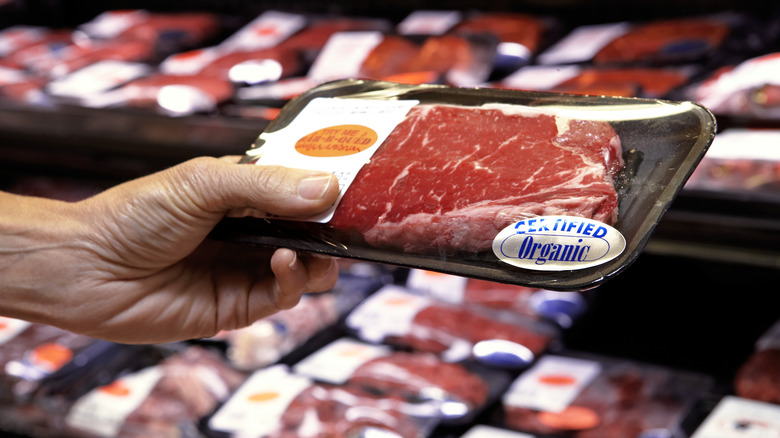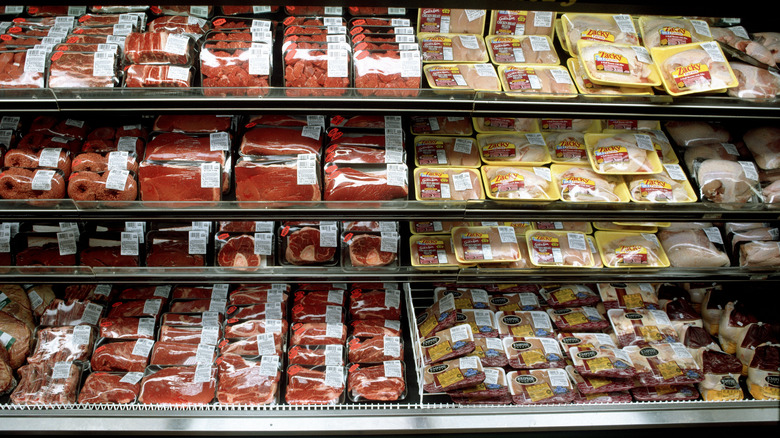The Telltale Sign That Grocery Store Meat Is Not Being Stored Safely
Just as spotting bagged salad mix inflated with trapped gas is a major grocery store red flag, there's a telltale sign that packaged meat might not be in prime condition for bringing home from the grocery store. If you spy a package of meat sealed with a lot of fluid, steer clear. Excess pink and red juices can be an indicator sign the meat has been stored improperly, or that it's been in storage for a while.
Rest assured, those liquids aren't blood. Blood is removed from commercially processed meat and poultry during slaughtering. Beef is roughly 75% water, and as it sits in the package, that water leaks out and combines with the natural protein myoglobin. The mixture of myoglobin and water is responsible for that pool of excess reddish fluid you're spying.
So, if it's so natural, why is the liquid a bad sign? The proteins in meat function as fluid retainers, and as meat ages or is excessively handled, the proteins break down and lose their ability to hold onto that water, resulting in a lower-quality cut and visible fluid buildup. This liquid actually has a name — "purge" — and it can hold the same harmful bacteria as raw meat. Handle purge with caution and prevent it from contaminating other items in your shopping cart. Before you even add it to the cart, give that package a good feel. If it doesn't feel cold, walk away.
Wetter isn't better
In addition to lack of moisture, consistent and rich fat marbling is another visible sign of a high-quality cut. If you feel the package and detect any hard lumps, that's gristle. Bright red or purple colors are also good signs to look out for. If you spy any brown in your beef, that can indicate oxidation or decay has started.
Another tip on the note of safe storage: Pick up your meat at the end of your grocery trip. Raw meat is highly perishable, so for maximum freshness, it's better to snag it on the way out than slam it in your cart and let it get tepid as you shop up and down all the other aisles. Similarly, if you live in a state with a warmer climate, or during hot summer months, it's a good idea to keep a small cooler in your car for bringing meat home from the grocery store safely. Stave off dangerous bacterial growth and keep it chilled.
For a choice cut you can feel confident about, a trip to the local farmer's market or, better yet, a whole animal butcher shop might be the move. But, if you're looking to get your protein and all your other groceries in one trip, grocery store meat can be totally fine — especially now that you know what to look for. (As for the best grocery store chains for snagging a choice cut of meat, Sprouts, Wegmans, and Whole Foods are our favorites.)

